In this e-weekly:
- A Pentecostal, a Pope, and an IPhone for Christian Unity (Helpful Hints for Life)
- From Prison to Confessionals; 12 Keys to Using the Brown Scapular of Our Lady of Mt. Carmel (Diocesan News and BEYOND)
- A Simple Prayer for Christian Unity (the praying hands at the very last)
- A Pentecostal, a Pope, and an IPhone for Christian Unity (Helpful Hints for Life)
- From Prison to Confessionals; 12 Keys to Using the Brown Scapular of Our Lady of Mt. Carmel (Diocesan News and BEYOND)
- A Simple Prayer for Christian Unity (the praying hands at the very last)
Catholic Good News
Receiving the Gospel, Serving God and Neighbor
Behold the Lamb of God
"Then I saw a Lamb, looking as if it had been slain, standing in the center..."
Revelation 5:6
Receiving the Gospel, Serving God and Neighbor
Behold the Lamb of God
"Then I saw a Lamb, looking as if it had been slain, standing in the center..."
Revelation 5:6
Dear friends in Christ Jesus,
Jesus is proclaimed as the Lamb of God by John the Baptist in the Holy Gospel:
John the Baptist saw Jesus coming toward him and said, "Behold, the Lamb of God, who takes away the sin of the world . - John 1:29
These are also the words we hear right before we kneel down before the Holy Eucharist as the priest holds Him up, and proclaims, "Behold the Lamb of God, behold Him who takes away the sins of the world. Blessed are those called to supper of the Lamb."
Jesus is proclaimed as the Lamb of God by John the Baptist in the Holy Gospel:
John the Baptist saw Jesus coming toward him and said, "Behold, the Lamb of God, who takes away the sin of the world . - John 1:29
These are also the words we hear right before we kneel down before the Holy Eucharist as the priest holds Him up, and proclaims, "Behold the Lamb of God, behold Him who takes away the sins of the world. Blessed are those called to supper of the Lamb."
Do you and I ever consider that in his flesh, Jesus Christ ended sin and death by being slain and dying on the Cross, and then became food for our very body and soul that we might be transformed so that we might populate Heaven?
Peace and prayers in Jesus through Mary, loved by Saint Joseph,
Father Robert
P.S. To learn more of why a Lamb, read the piece in Catholic Term.
P.S. This coming Sunday is the 14th Sunday of Ordinary Time . The readings can be found at: https://bible.usccb.org/bible/readings/071722.cfm
P.S.S. At the end of E-weekly is this week's readings with reflections and questions for self or family.
Peace and prayers in Jesus through Mary, loved by Saint Joseph,
Father Robert
P.S. To learn more of why a Lamb, read the piece in Catholic Term.
P.S. This coming Sunday is the 14th Sunday of Ordinary Time . The readings can be found at: https://bible.usccb.org/bible/readings/071722.cfm
P.S.S. At the end of E-weekly is this week's readings with reflections and questions for self or family.
Lamb of God
- name given to Christ foreshadowed in the Old Testament and fulfilled in the New Testament
[A symbol of Christ. Rendered in many forms as early as the fourth century. Various aspects show the animal balancing a staff by its right front leg, with a wound in its chest pouring blood into a chalice, representing Christ's Blood in the Passion; the staff bearing a flag signifying Christ's victory in the Resurrection; the lamb resting or standing on a closed book with its seven sealed streamers symbolizing Christ as the judge. The lamb is the emblem of docility; "harshly dealt with, he bore it humbly, he never opened his mouth like the lamb that is led to the slaughter house" (Isaiah 53:7). But the lamb triumphant is portrayed symbolically in the song ascribed to St. Ambrose, "Now at the Lamb's high royal feast," and St. John speaks of the wrath of the Lamb when the sixth seal is broken. As an emblem of St. John the Baptist, it is found in Chartres Cathedral on a banner that reads "Behold the Lamb of God," referring to Christ, "Who takes away the sins of the world." St. Agnes, the child virgin and martyr, is also symbolized by the lamb.]
"Lord, I believe, help my unbelief ."
–prayer of Saint Augustine of Hippo
- name given to Christ foreshadowed in the Old Testament and fulfilled in the New Testament
[A symbol of Christ. Rendered in many forms as early as the fourth century. Various aspects show the animal balancing a staff by its right front leg, with a wound in its chest pouring blood into a chalice, representing Christ's Blood in the Passion; the staff bearing a flag signifying Christ's victory in the Resurrection; the lamb resting or standing on a closed book with its seven sealed streamers symbolizing Christ as the judge. The lamb is the emblem of docility; "harshly dealt with, he bore it humbly, he never opened his mouth like the lamb that is led to the slaughter house" (Isaiah 53:7). But the lamb triumphant is portrayed symbolically in the song ascribed to St. Ambrose, "Now at the Lamb's high royal feast," and St. John speaks of the wrath of the Lamb when the sixth seal is broken. As an emblem of St. John the Baptist, it is found in Chartres Cathedral on a banner that reads "Behold the Lamb of God," referring to Christ, "Who takes away the sins of the world." St. Agnes, the child virgin and martyr, is also symbolized by the lamb.]
"Lord, I believe, help my unbelief ."
–prayer of Saint Augustine of Hippo
"Helpful Hints of Life"
Pray for Christian Unity
There is more that unites Christians than divides them. Yet at times this is easy to forget. Jesus prayed in John 17:
Father, keep them in your name that you have given me, so that they may be one just as we are. -John 17:11
A Pentecostal, a Pope and an iPhone for Christian UnityPosted by Cindy Wooden
VATICAN CITY — The search for Christian unity is an enterprise that has taken the time and energy of scholars and popes. Recently it got a helping hand from an iPhone and YouTube.
Those involved in ecumenism insist on the power of prayer to heal Christian divisions and on the importance of involving not only high-powered theologians, but Christians of every community and every walk of life. They need to meet each other, get to know each other, help each other and pray with and for each other.
Putting those sentiments into practice, Pope Francis agreed to record a message to a group of Pentecostals in the United States. His guest, a bishop from a Pentecostal Christian community, did the camera work with an iPhone.
Pray for Christian Unity
There is more that unites Christians than divides them. Yet at times this is easy to forget. Jesus prayed in John 17:
Father, keep them in your name that you have given me, so that they may be one just as we are. -John 17:11
A Pentecostal, a Pope and an iPhone for Christian UnityPosted by Cindy Wooden
VATICAN CITY — The search for Christian unity is an enterprise that has taken the time and energy of scholars and popes. Recently it got a helping hand from an iPhone and YouTube.
Those involved in ecumenism insist on the power of prayer to heal Christian divisions and on the importance of involving not only high-powered theologians, but Christians of every community and every walk of life. They need to meet each other, get to know each other, help each other and pray with and for each other.
Putting those sentiments into practice, Pope Francis agreed to record a message to a group of Pentecostals in the United States. His guest, a bishop from a Pentecostal Christian community, did the camera work with an iPhone.
The pope’s message can be seen here, it begins at about 31:35 after Bishop Tony Palmer delivers a speech to a Kenneth Copeland Ministries about the importance of Christian unity for preaching salvation in Christ to the world. The bishop, who also serves as international ecumenical officer for the Communion of Evangelical Episcopal Churches, a group that is not affiliated with the Anglican Communion, takes a much simpler view of the path full Christian unity than the pope and the mainline Christian churches do.
The translation used for the English subtitles on the video are not precise, but the pope’s sincerity is clear.
The video can be found at: http://www.youtube.com/watch?v=NZ9Ssvs5cgY
John the Baptist is "more than a prophet." In him, the Holy Spirit concludes his speaking through the prophets. John completes the cycle of prophets begun by Elijah. He proclaims the imminence of the consolation of Israel; he is the "voice" of the Consoler who is coming. As the Spirit of truth will also do, John "came to bear witness to the light." In John's sight, the Spirit thus brings to completion the careful search of the prophets and fulfills the longing of the angels. "He on whom you see the Spirit descend and remain, this is he who baptizes with the Holy Spirit. And I have seen and have borne witness that this is the Son of God. . . . Behold, the Lamb of God." -Catechism of the Catholic Church #719
The translation used for the English subtitles on the video are not precise, but the pope’s sincerity is clear.
The video can be found at: http://www.youtube.com/watch?v=NZ9Ssvs5cgY
John the Baptist is "more than a prophet." In him, the Holy Spirit concludes his speaking through the prophets. John completes the cycle of prophets begun by Elijah. He proclaims the imminence of the consolation of Israel; he is the "voice" of the Consoler who is coming. As the Spirit of truth will also do, John "came to bear witness to the light." In John's sight, the Spirit thus brings to completion the careful search of the prophets and fulfills the longing of the angels. "He on whom you see the Spirit descend and remain, this is he who baptizes with the Holy Spirit. And I have seen and have borne witness that this is the Son of God. . . . Behold, the Lamb of God." -Catechism of the Catholic Church #719
Catholic Websites of the Week
Catholic Society of Evangelists
https://catholicsoe.org/
Living and Sharing the fullness of the Faith. A worldwide lay apostolate centered on love for Christ, consecrated to Mary, loyal to Peter's successor. The world is in urgent need of discovering Jesus Christ and in being one with His Church. It is within Christ’s Catholic Church - "the pillar and foundation of truth" (1 Tim 3:15) - that the person comes to the fullness of his or her relationship with Jesus. You can be a powerful instrument in communicating this life transforming message.
Catholic Society of Evangelists
https://catholicsoe.org/
Living and Sharing the fullness of the Faith. A worldwide lay apostolate centered on love for Christ, consecrated to Mary, loyal to Peter's successor. The world is in urgent need of discovering Jesus Christ and in being one with His Church. It is within Christ’s Catholic Church - "the pillar and foundation of truth" (1 Tim 3:15) - that the person comes to the fullness of his or her relationship with Jesus. You can be a powerful instrument in communicating this life transforming message.
Some things take time. Pedro Silva needed to reach the age of 50, celebrated in a high-security prison cell, to look back and understand the “signs” he received along the way.
“I realized that God was always with me, He doesn't give up on us, so we can't lose hope,” he said, with the smile of someone who believes he is about to start a new life.
A few days before being released, after six years in jail for drug trafficking, Silva put the finishing touches on the 50 confessionals that, together with four other prisoners, he built for World Youth Day (WYD) 2023, which will take place in Lisbon, Portugal, August 1-6, and will be attended by Pope Francis.
While still in prison, Silva told CNA about one of the first missions he will undertake post-incarceration — participating in WYD as a volunteer and helping to set up the confessionals in “Reconciliation Park,” which is being prepared in a Lisbon district called Belém (in English, “Bethlehem”), located alongside the Tagus River.
“I realized that God was always with me, He doesn't give up on us, so we can't lose hope,” he said, with the smile of someone who believes he is about to start a new life.
A few days before being released, after six years in jail for drug trafficking, Silva put the finishing touches on the 50 confessionals that, together with four other prisoners, he built for World Youth Day (WYD) 2023, which will take place in Lisbon, Portugal, August 1-6, and will be attended by Pope Francis.
While still in prison, Silva told CNA about one of the first missions he will undertake post-incarceration — participating in WYD as a volunteer and helping to set up the confessionals in “Reconciliation Park,” which is being prepared in a Lisbon district called Belém (in English, “Bethlehem”), located alongside the Tagus River.
The benches of the confessionals ready and packed, in the atrium of the workshop at the Coimbra Prison. Photo courtesy of Clara RaimundoIn all, 150 confessionals were built in three Portuguese prisons (Coimbra, Paços de Ferreira, and Oporto), following an agreement between the WYD Lisbon 2023 Foundation and the Directorate-General for Reinsertion and Prison Services, with the aim of valuing the professional skills of prisoners and contributing to their reintegration into society.
Upon learning of Silva's intention, the WYD Local Organizing Committee was overjoyed.
“We are very interested in complying with his wishes and we will do all the necessary steps so that he can participate in the setting up of the confessionals,” assured the spokeswoman for the WYD Lisbon 2023 Foundation, Rosa Pedroso Lima.
The different pieces that make up the structure of each confessional, together with the benches that will be placed inside, are already packed and stacked, ready to go directly to Belém, where Reconciliation Park will be open from Aug. 1-4, between 10 a.m. and 6 p.m.
During this time, distributed among the confessionals will be priests of different nationalities (and, on the morning of Aug. 4, the pope himself), available to listen to pilgrims from all over the world who wish to receive the sacrament of reconciliation.
Coincidence or not, it was precisely in Belém, in the church of the Jerónimos Monastery, that Silva received baptism at the age of 12. Neither he nor his 12 siblings had been baptized as babies and never attended catechesis.
In the midst of a complicated childhood, with his parents absent and in the care of a grandmother, Silva remembers the day his religion teacher asked the classroom: “Who is still not baptized?” Silva was the only one to put his hand in the air and that day he came home asking for the sacrament.
Silva’s grandmother had no idea who to invite to be his godparents. “I was a problematic child and she thought nobody would want it, but I suggested it could be my primary teacher and off we went to talk to her, who gladly accepted… I ended up keeping in touch with her throughout my life, until I came to prison,” he recalled.
Despite having been baptized, Silva did not remain connected to the Church. As an adult, he lived in Argentina for a few years and experienced another moment he will never forget.
“I went to the cathedral with my sister, who lived in Buenos Aires, and with her husband’s family, and we attended Mass.” The celebrant was none other than the then-Cardinal Jorge Bergoglio. “In other words, I had the privilege of being with the pope! And from then on, I really liked him,” he said.
Upon learning of Silva's intention, the WYD Local Organizing Committee was overjoyed.
“We are very interested in complying with his wishes and we will do all the necessary steps so that he can participate in the setting up of the confessionals,” assured the spokeswoman for the WYD Lisbon 2023 Foundation, Rosa Pedroso Lima.
The different pieces that make up the structure of each confessional, together with the benches that will be placed inside, are already packed and stacked, ready to go directly to Belém, where Reconciliation Park will be open from Aug. 1-4, between 10 a.m. and 6 p.m.
During this time, distributed among the confessionals will be priests of different nationalities (and, on the morning of Aug. 4, the pope himself), available to listen to pilgrims from all over the world who wish to receive the sacrament of reconciliation.
Coincidence or not, it was precisely in Belém, in the church of the Jerónimos Monastery, that Silva received baptism at the age of 12. Neither he nor his 12 siblings had been baptized as babies and never attended catechesis.
In the midst of a complicated childhood, with his parents absent and in the care of a grandmother, Silva remembers the day his religion teacher asked the classroom: “Who is still not baptized?” Silva was the only one to put his hand in the air and that day he came home asking for the sacrament.
Silva’s grandmother had no idea who to invite to be his godparents. “I was a problematic child and she thought nobody would want it, but I suggested it could be my primary teacher and off we went to talk to her, who gladly accepted… I ended up keeping in touch with her throughout my life, until I came to prison,” he recalled.
Despite having been baptized, Silva did not remain connected to the Church. As an adult, he lived in Argentina for a few years and experienced another moment he will never forget.
“I went to the cathedral with my sister, who lived in Buenos Aires, and with her husband’s family, and we attended Mass.” The celebrant was none other than the then-Cardinal Jorge Bergoglio. “In other words, I had the privilege of being with the pope! And from then on, I really liked him,” he said.
Made from recycled wood, the confessionals have a simple structure, which Pedro Silva, already used to making more complex pieces in the prison's carpentry shop, found it easy to execute. Photo courtesy of Clara Raimundo
Late catechesis and the right opportunity
Years later, living with another sister in Alicante, Spain, Silva was going through “a particularly difficult phase” and, desperate, he decided to pray.
“I was walking down the street and asked God to help me, to give me a sign. The next moment, I look down at the floor and see a folded magazine. I open it and it was an issue of Awake! by Jehovah's Witnesses. So I looked up at the sky and said to God, 'What? That fast?'"
Pedro laughed as he shared his story, fondly recalling how he went out to the street where some members of Jehovah's Witnesses used to be and spoke to them. “From then on, every week they came to the house to teach me about the Bible. It was there that I deepened my relationship with God.”
But when he moved to Vigo, another Spanish city, to work in a restaurant, he “didn't have time for anything,” and his connection to religion was lost.
A new complicated phase in life marked by some mistakes, eventually brought him back to Portugal, condemned to a six-year sentence at the Coimbra Prison. It was there that he learned that World Youth Day would take place in Lisbon, though he was still far from imagining he would ever see the pope he loved again. But when the challenge of the confessionals came and he was one of the five chosen to join the team that would build them, Silva felt that it was another sign from God, and a new opportunity that appeared when he needed it most.
“I was very happy and grateful, and it makes me proud to know that in those confessionals there is a part of me and of my companions,” he said.
The fact that it was a better paid job than usual in prison was extra motivation.
“When I found out that we were going to receive ten euros a day, I immediately thought that it would be a good help so that, when I was released, I wouldn't be so dependent on my family,” he said.
Made from recycled wood, supplied by the JMJ Lisboa 2023 Foundation, the confessionals have a simple structure, which Silva, already used to making more complex pieces in the prison's carpentry shop, found easy to execute.
“And since we have a colleague on the team who is a real carpenter, we even improved what had been designed,” he points out with pride, while showing one of the confessionals already completed and assembled in the workshop, so that it can be photographed.
Years later, living with another sister in Alicante, Spain, Silva was going through “a particularly difficult phase” and, desperate, he decided to pray.
“I was walking down the street and asked God to help me, to give me a sign. The next moment, I look down at the floor and see a folded magazine. I open it and it was an issue of Awake! by Jehovah's Witnesses. So I looked up at the sky and said to God, 'What? That fast?'"
Pedro laughed as he shared his story, fondly recalling how he went out to the street where some members of Jehovah's Witnesses used to be and spoke to them. “From then on, every week they came to the house to teach me about the Bible. It was there that I deepened my relationship with God.”
But when he moved to Vigo, another Spanish city, to work in a restaurant, he “didn't have time for anything,” and his connection to religion was lost.
A new complicated phase in life marked by some mistakes, eventually brought him back to Portugal, condemned to a six-year sentence at the Coimbra Prison. It was there that he learned that World Youth Day would take place in Lisbon, though he was still far from imagining he would ever see the pope he loved again. But when the challenge of the confessionals came and he was one of the five chosen to join the team that would build them, Silva felt that it was another sign from God, and a new opportunity that appeared when he needed it most.
“I was very happy and grateful, and it makes me proud to know that in those confessionals there is a part of me and of my companions,” he said.
The fact that it was a better paid job than usual in prison was extra motivation.
“When I found out that we were going to receive ten euros a day, I immediately thought that it would be a good help so that, when I was released, I wouldn't be so dependent on my family,” he said.
Made from recycled wood, supplied by the JMJ Lisboa 2023 Foundation, the confessionals have a simple structure, which Silva, already used to making more complex pieces in the prison's carpentry shop, found easy to execute.
“And since we have a colleague on the team who is a real carpenter, we even improved what had been designed,” he points out with pride, while showing one of the confessionals already completed and assembled in the workshop, so that it can be photographed.
Pedro Silva puts the finishing touches on painting a confessional. “As we have a colleague on the team who is a real carpenter, we even improved what had been designed,” he stressed. Photo courtesy of Clara Raimundo
More prisoners at WYD?
Orlando Carvalho, who has been running the Coimbra Prison for ten years, is also proud. “It is part of the tradition of this establishment to operate the workshop sector, with 13 different areas, including joinery and carpentry, so we immediately said yes when asked if we would like to participate in the construction of the confessionals,” he points out.
Projects like this, he says, “can be transformative and make a difference in the lives of inmates, because in addition to the practical and operational component of the work, they have a dimension and projection that other works do not have.” In the case of this specific project, “in addition to being better paid than usual, it has great public visibility, which gives them an empowerment that can be very positive,” he explains. Silva's case is proof of that.
As the current director of the Coimbra Prison, Carvalho believes “more projects like this are sorely needed, which provide inmates with positive and structuring experiences and enhance their social reintegration.” Especially because "society still hasn't realized that, instead of pushing these people away or condemning them to oblivion, what it needs is to give them projects that add value both from a material point of view and from an emotional point of view."
“Unfortunately, Pope Francis' vision of prisons and inmates is not exactly the dominant one…,” laments Carvalho, who has followed Francis' efforts to approach this “existential periphery,” and goes further by saying that, not only Silva, but also other prisoners (who are still in jail) should be able to participate more directly in WYD.
“I think it would make perfect sense for prisoners to have an even more active participation, to be able to be present at some point in the World Youth Day and have contact with the pope,” he says. “Now, it is up to the Church and the General Directorate to find the ideal framework for this to happen... There are ways to do this. Not all 560 inmates of our establishment could go, but even if there were only a few it would be an important moment from a symbolic point of view.”
That, indeed, he says “would be a sign.” Not just for Pedro Silva, but “for everyone.”
Orlando Carvalho, who has been running the Coimbra Prison for ten years, is also proud. “It is part of the tradition of this establishment to operate the workshop sector, with 13 different areas, including joinery and carpentry, so we immediately said yes when asked if we would like to participate in the construction of the confessionals,” he points out.
Projects like this, he says, “can be transformative and make a difference in the lives of inmates, because in addition to the practical and operational component of the work, they have a dimension and projection that other works do not have.” In the case of this specific project, “in addition to being better paid than usual, it has great public visibility, which gives them an empowerment that can be very positive,” he explains. Silva's case is proof of that.
As the current director of the Coimbra Prison, Carvalho believes “more projects like this are sorely needed, which provide inmates with positive and structuring experiences and enhance their social reintegration.” Especially because "society still hasn't realized that, instead of pushing these people away or condemning them to oblivion, what it needs is to give them projects that add value both from a material point of view and from an emotional point of view."
“Unfortunately, Pope Francis' vision of prisons and inmates is not exactly the dominant one…,” laments Carvalho, who has followed Francis' efforts to approach this “existential periphery,” and goes further by saying that, not only Silva, but also other prisoners (who are still in jail) should be able to participate more directly in WYD.
“I think it would make perfect sense for prisoners to have an even more active participation, to be able to be present at some point in the World Youth Day and have contact with the pope,” he says. “Now, it is up to the Church and the General Directorate to find the ideal framework for this to happen... There are ways to do this. Not all 560 inmates of our establishment could go, but even if there were only a few it would be an important moment from a symbolic point of view.”
That, indeed, he says “would be a sign.” Not just for Pedro Silva, but “for everyone.”
12 Keys to Using the Brown Scapular of Our Lady of Mt. Carmel
St. Claude de la Colombière said: “You ask, what if I would want to die with my sins? I answer you, then you will die in sin, but you will not die with your scapular.”
2. It was an article of clothing.
The word “scapular” comes from the Latin “scapulae,” which means “shoulders” and was originally an overlapping article of clothing worn over the shoulders by monks at work.
The Carmelites adopted it as a sign of special dedication to Our Lady, seeking to imitate her dedication to Christ and neighbor.
3. It’s a gift from the Virgin Mary.
According to tradition, the scapular, as it is now known, was given by the Virgin Mary herself to St. Simon Stock on July 16, 1251.
Mary told him: “It must be a sign and a privilege for you and for all Carmelites: Whoever dies wearing the scapular will not suffer eternal fire.” Later, the Church extended the use of the scapular to the laity.
4. It’s a mini habit.
The scapular is like a miniature Carmelite habit that all devotees can wear as a sign of their consecration to the Virgin Mary.
It consists of a string that is worn around the neck with two small pieces of brown cloth attached. One is placed on the chest and the other on the back, and it is usually worn underneath clothing.
5. It’s a service uniform.
St. Alphonsus Liguori, a doctor of the Church, said: “Just as men are proud that others wear their uniform, so Our Lady, Mother Mary, is pleased when her servants wear their scapular as proof that they have dedicated themselves to her service, and they are members of the family of the Mother of God.”
6. It has three meanings.
The scapular stands for the maternal love and protection of Mary, for belonging to Mary, and for the gentle yoke of Christ that she helps us to bear.
7. It is a sacramental.
The Brown Scapular is recognized by the Church as a sacramental — that is, a sign that helps us to live a holy life and to increase our devotion.
The scapular does not impart grace as the sacraments do, but it disposes the person wearing it to the love of the Lord and to repentance if it is received with devotion.
8. It can be given to a non-Catholic.
One day a dying old man was brought to St. Simon Stock Hospital in New York City. A nurse noticed he was wearing the Brown Scapular and called a priest. As prayers were said over him, the man regained consciousness and told the priest that he wasn’t Catholic but wore the scapular as a promise to his friends. The priest asked the man if he wanted to become Catholic, and before he died the man received Baptism and Anointing of the Sick.
9. It was seen in one of the Fatima apparitions.
Lucia, the visionary of Our Lady of Fatima, reported that in her last apparition (October 1917), Mary appeared with the Carmelite habit, the scapular in her hand, and said that her true children wear it with reverence.
Mary also asked that those who consecrate themselves to her wear it as a sign of that consecration.
10. The scapular has been discovered undamaged after burial.
Blessed Pope Gregory X was buried with his scapular and, 600 years later when his tomb was opened, the object was intact. Something similar happened with St. Alphonsus Liguori.
St. John Bosco and St. John Paul II also wore the scapular, and St. Peter Claver vested the scapular with those he converted.
11. There’s a preferred way to receive the scapular.
The imposition of the scapular should preferably be done in community, and in the ceremony the spiritual meaning and commitment to the Blessed Virgin should be clearly expressed.
The first scapular must be blessed by a priest and placed on the devotee while reciting the following prayer:
“Receive this blessed scapular and ask the Most Holy Virgin Mary, on her merits, that you may wear it without any stain of sin and that she guard you from all adversity and bring you unto everlasting life.”
12. Only the first scapular you receive needs to be blessed.
When the first scapular one receives is blessed, the devotee does not need to ask subsequent scapulars to be blessed. Those that are worn out, if they were blessed, should not be thrown away but should be burned or buried, as is suitable for sacramentals.
This story was first published by ACI Prensa, CNA’s Spanish-language news partner. It has been translated and adapted by CNA
Vatican Media / EWTN, YouTubeFifty years ago, Pope St. Paul VI watched Neil Armstrong become the first man to walk on the moon.
The pope looked at the moon from a telescope and watched the landing on television from the Vatican Astronomical Observatory.
He dedicated Psalm 8 to the astronauts, giving them a handwritten letter to leave on the moon. He also blessed them once they landed. He then congratulated President Richard Nixon via telegram for the successful landing.
Pope St. Paul VI sent this message to Apollo 11 astronauts:“Glory to God in the highest and peace on earth to men of good will!
Christ, when coming among us from the abysses of the divinity, made this blessed voice resound in the firmament.
Today, we, His humble representative, echo and repeat it as a festive hymn on the part of our whole terrestrial globe, no longer the insurmountable boundary of human existence but the open threshold to the wide expanse of boundless space and new destinies.
Glory to God!
And honor to you, the architects of this great space undertaking! Honor to the men responsible to the scientists, the planners, the organizers, and the technicians who made it a reality!
Honor to all those who have made possible this most daring flight. Honor to all of you who in any way played a part.
Honor to you who, seated at your marvelous instruments, control the flight; to you whom inform the world of the enterprise and its time-table, which extends to the depths of the heavens the wise and bold dominion of man.
Honor, greetings and blessings!
Here, from His Observatory at Castel Gandolfo, near Rome, Pope Paul the Sixth is speaking to you astronauts.
Honor, greetings and blessing to you, conquerors of the Moon, pale lamp of our nights and our dreams! Bring to her, with your living presence, the voice of the spirit, a hymn to God, our Creator and our Father.
We are close to you, with our good wishes and with our prayers. Together with the whole Catholic Church, Paul the Sixth salutes you.”
INSPIRED BY POPE FRANCES, CALIFORNIA LEGAL COUNSEL CLINIC OFFERS FREE SERVICES
Oakland, Calif., Jul 19 (EWTN News/CNA) - Free legal counsel and advice may sound too good to be true, but in the Diocese of Oakland, it’s a reality.
On June 7, the Pope Francis Legal Clinic opened in Oakland, California, on the property of the Cathedral of Christ the Light.
“So many people have legal problems because law is everywhere,” Tom Greerty, director and co-founder of the clinic, told EWTN News.
“What we try and do is relieve the hardships of people.”
Experienced lawyers volunteer their time to offer free legal consulting, reconciliation, and resolution services to any adult in the community.
Greerty, who recently retired from his legal practice in Martinez, California, said the idea started while he was earning his master’s degree in theological studies from the Dominican School of Philosophy and Theology in Berkeley.
“My professor, Sister Marianne Farina, asked me to do a project which would be consistent with my job,” Greerty said.
That project became the Pope Francis Legal Clinic, and in less than two years, others helped to make his idea a reality.
Nico Herrera, another attorney in the diocese, helped co-found the clinic. The Order of Malta, which runs a health clinic on the cathedral grounds, made space available for the new endeavor with the help of Tony Sanchez Corea, a member of the board. Bishop Michael C. Barber embraced the idea and had the clinic’s name in mind.
“I want this to be called the Pope Francis Legal Clinic,” the bishop told Greerty.
“We agreed to that naturally,” Greerty said.
Bishop Barber had a desire for the clinic to be about mercy, not just the law.
“Mercy is ordinarily not about the law,” Greerty explained. “The law doesn’t think in terms of mercy. The law thinks in terms of justice.”
But Greerty said the bishop wanted him and other faithful lawyers to bring mercy and reconciliation to legal problems that Greerty said are “almost always a breakdown in human relations.”
The lawyers spend an hour with each client. They listen to the client’s story, go over the history of the client’s problem, and try to understand the “nature of the problem.”
“We try to honor the memory of Pope Francis, and what he is trying to do with the Year of Mercy, to try and help people in a merciful way with the law,” Greerty said.
He also noted that the idea could likely be replicated in other dioceses across the country. Many Catholic lawyers are retired or far enough along in their practices to have the time and resources to establish similar clinics, he said.
Bishop Barber blessed the clinic on June 4, the feast of the Immaculate Heart of Mary, and the clinic was consecrated to the Immaculate Heart as well.
Right now, the clinic is open from 10:00 a.m. to 2:00 p.m. on Tuesdays and Thursdays. Appointments are required.
According to Greerty, 10 lawyers have signed up to volunteer their services and more than 20 clients have already made appointments.
“I think we may be onto something,” he said.
POPE'S GENERAL AUDIENCE:
"BE COURAGEOUS AND GO TO CONFESSION"
Vatican City, 19 February (VIS) – The Holy Father dedicated his catechesis at this Wednesday's general audience to the Sacrament of penance. After touring St. Peter's Square in an open car, greeting the thousands of faithful who applauded as he passed, the Pope explained that “the forgiveness of our sins is not something we can offer to ourselves; it is not the result of our efforts, but rather a gift from the Holy Spirit, which fills us from the wellspring of mercy and grace that surges endlessly from the open heart of Christ, crucified and risen again. … It reminds us that it is only by allowing ourselves to be reconciled through the Lord Jesus with the Father and with our brothers that we may truly be at peace”.
Pope Francis explained that the celebration of this Sacrament has transformed from its previously public nature to the private and reserved form of Confession. However, “this should not lead to the loss of the ecclesiastical matrix, which constitutes its living context. Indeed, the Christian community is the place in which the presence of the Spirit is felt, which renews hearts in God's love and brings all brothers together as one, in Jesus Christ”. He continued, “For this reason, it is not enough to ask for the Lord's forgiveness in our own minds and hearts, but rather it is also necessary to humbly and trustfully confess our sins to a minister of the Church”.
The Bishop of Rome emphasised that the priest does not only represent God, but rather the community as a whole, and that anyone who seeks to confess only to God should remember that our sins are also committed against our brothers and against the Church, which is why it is necessary to ask forgiveness from them too, and to be ashamed for what we have done. “Shame can be good”, he affirmed; “It is good for us to have a certain amount of shame, because to be ashamed can be healthy. When someone has no shame, in my country we describe them as “sin verguenza”, shameless. Shame can be good as it can make us humble, and the priest receives this confession with love and tenderness, and forgives in the name of God. Also from a human point of view, to unburden oneself, it is good to speak with a brother and to tell the priest those things which lie so heavily upon our hearts. And one feels unburdened before God, with the Church, and with a brother. Do not be afraid of Confession!”
The Pontiff went on to ask those present when they last confessed, and strongly urged them not to overlook Confession. “If a long time has passed, do not waste another day, go, the priest will be good. It is Jesus who is there, and Jesus is better than a priest, Jesus will receive you, he will receive you with love. Be courageous and go to Confession! … Every time we confess, God embraces us, God celebrates! Let us go ahead on this path. May God bless you!”
After agreeing to baptize him along with the sinners, John the Baptist looked at Jesus and pointed him out as the "Lamb of God, who takes away the sin of the world". By doing so, he reveals that Jesus is at the same time the suffering Servant who silently allows himself to be led to the slaughter and who bears the sin of the multitudes, and also the Paschal Lamb, the symbol of Israel's redemption at the first Passover. Christ's whole life expresses his mission: "to serve, and to give his life as a ransom for many." -Catechism of the Catholic Church #608
The pope looked at the moon from a telescope and watched the landing on television from the Vatican Astronomical Observatory.
He dedicated Psalm 8 to the astronauts, giving them a handwritten letter to leave on the moon. He also blessed them once they landed. He then congratulated President Richard Nixon via telegram for the successful landing.
Pope St. Paul VI sent this message to Apollo 11 astronauts:“Glory to God in the highest and peace on earth to men of good will!
Christ, when coming among us from the abysses of the divinity, made this blessed voice resound in the firmament.
Today, we, His humble representative, echo and repeat it as a festive hymn on the part of our whole terrestrial globe, no longer the insurmountable boundary of human existence but the open threshold to the wide expanse of boundless space and new destinies.
Glory to God!
And honor to you, the architects of this great space undertaking! Honor to the men responsible to the scientists, the planners, the organizers, and the technicians who made it a reality!
Honor to all those who have made possible this most daring flight. Honor to all of you who in any way played a part.
Honor to you who, seated at your marvelous instruments, control the flight; to you whom inform the world of the enterprise and its time-table, which extends to the depths of the heavens the wise and bold dominion of man.
Honor, greetings and blessings!
Here, from His Observatory at Castel Gandolfo, near Rome, Pope Paul the Sixth is speaking to you astronauts.
Honor, greetings and blessing to you, conquerors of the Moon, pale lamp of our nights and our dreams! Bring to her, with your living presence, the voice of the spirit, a hymn to God, our Creator and our Father.
We are close to you, with our good wishes and with our prayers. Together with the whole Catholic Church, Paul the Sixth salutes you.”
INSPIRED BY POPE FRANCES, CALIFORNIA LEGAL COUNSEL CLINIC OFFERS FREE SERVICES
Oakland, Calif., Jul 19 (EWTN News/CNA) - Free legal counsel and advice may sound too good to be true, but in the Diocese of Oakland, it’s a reality.
On June 7, the Pope Francis Legal Clinic opened in Oakland, California, on the property of the Cathedral of Christ the Light.
“So many people have legal problems because law is everywhere,” Tom Greerty, director and co-founder of the clinic, told EWTN News.
“What we try and do is relieve the hardships of people.”
Experienced lawyers volunteer their time to offer free legal consulting, reconciliation, and resolution services to any adult in the community.
Greerty, who recently retired from his legal practice in Martinez, California, said the idea started while he was earning his master’s degree in theological studies from the Dominican School of Philosophy and Theology in Berkeley.
“My professor, Sister Marianne Farina, asked me to do a project which would be consistent with my job,” Greerty said.
That project became the Pope Francis Legal Clinic, and in less than two years, others helped to make his idea a reality.
Nico Herrera, another attorney in the diocese, helped co-found the clinic. The Order of Malta, which runs a health clinic on the cathedral grounds, made space available for the new endeavor with the help of Tony Sanchez Corea, a member of the board. Bishop Michael C. Barber embraced the idea and had the clinic’s name in mind.
“I want this to be called the Pope Francis Legal Clinic,” the bishop told Greerty.
“We agreed to that naturally,” Greerty said.
Bishop Barber had a desire for the clinic to be about mercy, not just the law.
“Mercy is ordinarily not about the law,” Greerty explained. “The law doesn’t think in terms of mercy. The law thinks in terms of justice.”
But Greerty said the bishop wanted him and other faithful lawyers to bring mercy and reconciliation to legal problems that Greerty said are “almost always a breakdown in human relations.”
The lawyers spend an hour with each client. They listen to the client’s story, go over the history of the client’s problem, and try to understand the “nature of the problem.”
“We try to honor the memory of Pope Francis, and what he is trying to do with the Year of Mercy, to try and help people in a merciful way with the law,” Greerty said.
He also noted that the idea could likely be replicated in other dioceses across the country. Many Catholic lawyers are retired or far enough along in their practices to have the time and resources to establish similar clinics, he said.
Bishop Barber blessed the clinic on June 4, the feast of the Immaculate Heart of Mary, and the clinic was consecrated to the Immaculate Heart as well.
Right now, the clinic is open from 10:00 a.m. to 2:00 p.m. on Tuesdays and Thursdays. Appointments are required.
According to Greerty, 10 lawyers have signed up to volunteer their services and more than 20 clients have already made appointments.
“I think we may be onto something,” he said.
POPE'S GENERAL AUDIENCE:
"BE COURAGEOUS AND GO TO CONFESSION"
Vatican City, 19 February (VIS) – The Holy Father dedicated his catechesis at this Wednesday's general audience to the Sacrament of penance. After touring St. Peter's Square in an open car, greeting the thousands of faithful who applauded as he passed, the Pope explained that “the forgiveness of our sins is not something we can offer to ourselves; it is not the result of our efforts, but rather a gift from the Holy Spirit, which fills us from the wellspring of mercy and grace that surges endlessly from the open heart of Christ, crucified and risen again. … It reminds us that it is only by allowing ourselves to be reconciled through the Lord Jesus with the Father and with our brothers that we may truly be at peace”.
Pope Francis explained that the celebration of this Sacrament has transformed from its previously public nature to the private and reserved form of Confession. However, “this should not lead to the loss of the ecclesiastical matrix, which constitutes its living context. Indeed, the Christian community is the place in which the presence of the Spirit is felt, which renews hearts in God's love and brings all brothers together as one, in Jesus Christ”. He continued, “For this reason, it is not enough to ask for the Lord's forgiveness in our own minds and hearts, but rather it is also necessary to humbly and trustfully confess our sins to a minister of the Church”.
The Bishop of Rome emphasised that the priest does not only represent God, but rather the community as a whole, and that anyone who seeks to confess only to God should remember that our sins are also committed against our brothers and against the Church, which is why it is necessary to ask forgiveness from them too, and to be ashamed for what we have done. “Shame can be good”, he affirmed; “It is good for us to have a certain amount of shame, because to be ashamed can be healthy. When someone has no shame, in my country we describe them as “sin verguenza”, shameless. Shame can be good as it can make us humble, and the priest receives this confession with love and tenderness, and forgives in the name of God. Also from a human point of view, to unburden oneself, it is good to speak with a brother and to tell the priest those things which lie so heavily upon our hearts. And one feels unburdened before God, with the Church, and with a brother. Do not be afraid of Confession!”
The Pontiff went on to ask those present when they last confessed, and strongly urged them not to overlook Confession. “If a long time has passed, do not waste another day, go, the priest will be good. It is Jesus who is there, and Jesus is better than a priest, Jesus will receive you, he will receive you with love. Be courageous and go to Confession! … Every time we confess, God embraces us, God celebrates! Let us go ahead on this path. May God bless you!”
After agreeing to baptize him along with the sinners, John the Baptist looked at Jesus and pointed him out as the "Lamb of God, who takes away the sin of the world". By doing so, he reveals that Jesus is at the same time the suffering Servant who silently allows himself to be led to the slaughter and who bears the sin of the multitudes, and also the Paschal Lamb, the symbol of Israel's redemption at the first Passover. Christ's whole life expresses his mission: "to serve, and to give his life as a ransom for many." -Catechism of the Catholic Church #608
A bit of humor…
Reaching the end of a job interview, the Human Resources Officer asks a young engineer fresh out of the Massachusetts Institute of Technology, "And what starting salary are you looking for?" The engineer replies, "In the region of $125,000 a year, depending on the benefits package." The interviewer inquires, "Well, what would you say to a package of five weeks vacation, 14 paid holidays, full medical and dental, company matching retirement fund to 50% of salary, and a company car leased every two years, say, a red Corvette?" The engineer sits up straight and says, "Wow! Are you kidding?" The interviewer replies, "Yeah, but you started it."
------------------------------------
Teacher: "If I gave you 2 cats and another 2 cats and another 2, how many would you have?"Johnny: "Seven."Teacher: "No, listen carefully... If I gave you two cats, and another two cats and another two, how many would you have?"Johnny: "Seven."Teacher: "Let me put it to you differently. If I gave you two apples, and another two apples and another two, how many would you have?"Johnny: "Six."Teacher: "Good. Now if I gave you two cats, and another two cats and another two, how many would you have?"Johnny: "Seven!"Teacher: "Johnny, where in the heck do you get seven from?!"Johnny: "Because I've already have a cat!"
----------------------------------------------------------------------
42.7 percent of all statistics are made up on the spot.
----------------------------------------------------------------------
A Joke for the Older (and wiser?) Crowd
A distraught senior citizen phoned her doctor's office.
"Is it true," she wanted to know,
"that the medication you prescribed has
to be taken for the rest of my life?"
"Yes, I'm afraid so," the doctor told her.
There was a moment of silence before the senior lady replied,
"I'm wondering, then, just how serious is my condition
because this prescription is marked 'NO REFILLS'."
-----------------------------------------------------------------------------------------------
For the Married on the topic of OFFSPRING
• Ah, children. A woman knows all about her children. She knows about dentist appointments and romances, best friends, favorite foods, secret fears and hopes and dreams.
• A man is vaguely aware of some short people living in the house.
Reaching the end of a job interview, the Human Resources Officer asks a young engineer fresh out of the Massachusetts Institute of Technology, "And what starting salary are you looking for?" The engineer replies, "In the region of $125,000 a year, depending on the benefits package." The interviewer inquires, "Well, what would you say to a package of five weeks vacation, 14 paid holidays, full medical and dental, company matching retirement fund to 50% of salary, and a company car leased every two years, say, a red Corvette?" The engineer sits up straight and says, "Wow! Are you kidding?" The interviewer replies, "Yeah, but you started it."
------------------------------------
Teacher: "If I gave you 2 cats and another 2 cats and another 2, how many would you have?"Johnny: "Seven."Teacher: "No, listen carefully... If I gave you two cats, and another two cats and another two, how many would you have?"Johnny: "Seven."Teacher: "Let me put it to you differently. If I gave you two apples, and another two apples and another two, how many would you have?"Johnny: "Six."Teacher: "Good. Now if I gave you two cats, and another two cats and another two, how many would you have?"Johnny: "Seven!"Teacher: "Johnny, where in the heck do you get seven from?!"Johnny: "Because I've already have a cat!"
----------------------------------------------------------------------
42.7 percent of all statistics are made up on the spot.
----------------------------------------------------------------------
A Joke for the Older (and wiser?) Crowd
A distraught senior citizen phoned her doctor's office.
"Is it true," she wanted to know,
"that the medication you prescribed has
to be taken for the rest of my life?"
"Yes, I'm afraid so," the doctor told her.
There was a moment of silence before the senior lady replied,
"I'm wondering, then, just how serious is my condition
because this prescription is marked 'NO REFILLS'."
-----------------------------------------------------------------------------------------------
For the Married on the topic of OFFSPRING
• Ah, children. A woman knows all about her children. She knows about dentist appointments and romances, best friends, favorite foods, secret fears and hopes and dreams.
• A man is vaguely aware of some short people living in the house.
That we may be one Father as You and your Son are one. Amen.
Christ's death is both the Paschal sacrifice that accomplishes the definitive redemption of men, through "the Lamb of God, who takes away the sin of the world", and the sacrifice of the New Covenant, which restores man to communion with God by reconciling him to God through the "blood of the covenant, which was poured out for many for the forgiveness of sins". –Catechism of the Catholic Church #613
+JMJ+
SUNDAY BIBLICAL MASS READINGS AND QUESTIONS
for Self-Reflection, Couples or Family Discussion
14th Sunday in Ordinary Time – Sunday, July 9, 2023
The First Reading-Zachariah 9:9-10
Thus says the LORD: Rejoice heartily, O daughter Zion, shout for joy, O daughter Jerusalem! See, your king shall come to you; a just savior is he, meek, and riding on an ass, on a colt, the foal of an ass. He shall banish the chariot from Ephraim, and the horse from Jerusalem; the warrior's bow shall be banished, and he shall proclaim peace to the nations. His dominion shall be from sea to sea, and from the River to the ends of the earth.
Question for Reflection or Group Discussion
In Zechariah’s prophecy, then, there is a paradox: this coming king is triumphant—a conquering hero—and yet he conquers in a peaceful way, banishing “horse, chariot, and bow,” the weapons of war. He banishes them from “Ephraim”—the northern kingdom of Israel composed of predominantly of the ten tribes—and “Jerusalem”—the southern kingdom of Judah composed (mostly) of the two tribes Judah and Benjamin (with others mixed in). In other words, this king will reunite “all Israel.”
Adults - What are some ways we can use peace to conquer the issues in our life?
Teens - How do you think an attitude of peace can influence today’s culture?
Kids - Try to solve an argument peacefully this week.
Responsorial- Psalm 145: 1-2, 8-11, 13-14
R. I will praise your name for ever, my king and my God.
I will extol you, O my God and King,
and I will bless your name forever and ever.
Every day will I bless you,
and I will praise your name forever and ever.
R. I will praise your name for ever, my king and my God.
The LORD is gracious and merciful,
slow to anger and of great kindness.
The LORD is good to all
and compassionate toward all his works.
R. I will praise your name for ever, my king and my God.
Let all your works give you thanks, O LORD,
and let your faithful ones bless you.
Let them discourse of the glory of your kingdom
and speak of your might.
R. I will praise your name for ever, my king and my God.
The LORD is faithful in all his words
and holy in all his works.
The LORD lifts up all who are falling
and raises up all who are bowed down.
R. I will praise your name for ever, my king and my God.
For our Responsorial, Holy Mother Church gives us a very important Psalm, the last Davidic psalm in the whole Psalter, and one of only two psalms to mention “the kingdom of God”, the other being Ps 103. But Psalm 145 has much more to say about the kingdom of God than 103. It is the quintessential “kingdom of God” psalm. In this poem, David, the great king who was promised a universal kingdom, praise God for God’s universal kingdom. David acknowledges that God is the true, eternal, universal king; the implication, then, is that David’s kingdom is just a reflection of the divine reality. God’s kingdom is characterized by love, mercy, forgiveness, healing, and even resurrection: “lifting up the fallen” and “raising up” the “bowed down.”
How can you live the values of love, mercy and forgiveness this week?
The Second Reading- Romans 8: 9, 11-13
Brothers and sisters: You are not in the flesh; on the contrary, you are in the spirit, if only the Spirit of God dwells in you. Whoever does not have the Spirit of Christ does not belong to him. If the Spirit of the one who raised Jesus from the dead dwells in you, the one who raised Christ from the dead will give life to your mortal bodies also, through his Spirit that dwells in you. Consequently, brothers and sisters, we are not debtors to the flesh, to live according to the flesh. For if you live according to the flesh, you will die, but if by the Spirit you put to death the deeds of the body, you will live.
Question for Reflection or Group Discussion
This Sunday we find ourselves in Romans 8, the theological heart of the letter. St. Paul reminds us that we have the Spirit of Christ living in us. We have the Spirit through faith and the sacraments, especially baptism. It is the indwelling of the Holy Spirit that assures us we have eternal life. This present life has too much suffering and evil to be the object of our hope! To live joyful lives here and now, we must have a very robust notion of how quick and temporary this life is, and how joyful the next in God’s presence! The Holy Spirit enables us to live joyfully, with a peace that “transcends understanding”—i.e. doesn’t make sense from an earthly perspective!—because he lives in our hearts and consoles us by reminding us of heaven! This is the kingdom of God marked by resurrection described above in Psalm 145.
Meditate this week on the fact that the Holy Spirit, the literal love of God, dwells within your soul
The Holy Gospel according to Matthew 11:25-30
At that time Jesus exclaimed: "I give praise to you, Father, Lord of heaven and earth, for although you have hidden these things from the wise and the learned you have revealed them to little ones. Yes, Father, such has been your gracious will. All things have been handed over to me by my Father. No one knows the Son except the Father, and no one knows the Father except the Son and anyone to whom the Son wishes to reveal him. Come to me, all you who labor and are burdened, and I will give you rest. Take my yoke upon you and learn from me, for I am meek and humble of heart; and you will find rest for yourselves. For my yoke is easy, and my burden light."
Question for Reflection or Group Discussion
When he says, “all things have been handed over to me by my Father,” we see that Jesus is claiming to be the heir of the universal kingdom of David and the universal kingdom of God. The two are ultimately one and the same. Just as David handed all things over to Solomon, who then rode into Jerusalem to claim the throne on a donkey; so God has handed all things over to Jesus (Eph 1:22), who is also the Son of David. The humble mule of David on which Solomon rode was a public statement of the close relationship between father and son. So here, Jesus emphasizes his intimacy with the Father: “no one knows the Father but the Son.” Jesus alone, of all religious teachers who have ever lived, understands and experienced God as his Father, and can teach us how to have that relationship.
Adults - What does it mean to you to be an heir of the kingdom of God?
Teens - Do you have a relationship with all three Persons of the Trinity? How can you work on building those relationships up?
Kids - What does Jesus teach us about a relationship with God?
Christ's death is both the Paschal sacrifice that accomplishes the definitive redemption of men, through "the Lamb of God, who takes away the sin of the world", and the sacrifice of the New Covenant, which restores man to communion with God by reconciling him to God through the "blood of the covenant, which was poured out for many for the forgiveness of sins". –Catechism of the Catholic Church #613
+JMJ+
SUNDAY BIBLICAL MASS READINGS AND QUESTIONS
for Self-Reflection, Couples or Family Discussion
14th Sunday in Ordinary Time – Sunday, July 9, 2023
The First Reading-Zachariah 9:9-10
Thus says the LORD: Rejoice heartily, O daughter Zion, shout for joy, O daughter Jerusalem! See, your king shall come to you; a just savior is he, meek, and riding on an ass, on a colt, the foal of an ass. He shall banish the chariot from Ephraim, and the horse from Jerusalem; the warrior's bow shall be banished, and he shall proclaim peace to the nations. His dominion shall be from sea to sea, and from the River to the ends of the earth.
Question for Reflection or Group Discussion
In Zechariah’s prophecy, then, there is a paradox: this coming king is triumphant—a conquering hero—and yet he conquers in a peaceful way, banishing “horse, chariot, and bow,” the weapons of war. He banishes them from “Ephraim”—the northern kingdom of Israel composed of predominantly of the ten tribes—and “Jerusalem”—the southern kingdom of Judah composed (mostly) of the two tribes Judah and Benjamin (with others mixed in). In other words, this king will reunite “all Israel.”
Adults - What are some ways we can use peace to conquer the issues in our life?
Teens - How do you think an attitude of peace can influence today’s culture?
Kids - Try to solve an argument peacefully this week.
Responsorial- Psalm 145: 1-2, 8-11, 13-14
R. I will praise your name for ever, my king and my God.
I will extol you, O my God and King,
and I will bless your name forever and ever.
Every day will I bless you,
and I will praise your name forever and ever.
R. I will praise your name for ever, my king and my God.
The LORD is gracious and merciful,
slow to anger and of great kindness.
The LORD is good to all
and compassionate toward all his works.
R. I will praise your name for ever, my king and my God.
Let all your works give you thanks, O LORD,
and let your faithful ones bless you.
Let them discourse of the glory of your kingdom
and speak of your might.
R. I will praise your name for ever, my king and my God.
The LORD is faithful in all his words
and holy in all his works.
The LORD lifts up all who are falling
and raises up all who are bowed down.
R. I will praise your name for ever, my king and my God.
For our Responsorial, Holy Mother Church gives us a very important Psalm, the last Davidic psalm in the whole Psalter, and one of only two psalms to mention “the kingdom of God”, the other being Ps 103. But Psalm 145 has much more to say about the kingdom of God than 103. It is the quintessential “kingdom of God” psalm. In this poem, David, the great king who was promised a universal kingdom, praise God for God’s universal kingdom. David acknowledges that God is the true, eternal, universal king; the implication, then, is that David’s kingdom is just a reflection of the divine reality. God’s kingdom is characterized by love, mercy, forgiveness, healing, and even resurrection: “lifting up the fallen” and “raising up” the “bowed down.”
How can you live the values of love, mercy and forgiveness this week?
The Second Reading- Romans 8: 9, 11-13
Brothers and sisters: You are not in the flesh; on the contrary, you are in the spirit, if only the Spirit of God dwells in you. Whoever does not have the Spirit of Christ does not belong to him. If the Spirit of the one who raised Jesus from the dead dwells in you, the one who raised Christ from the dead will give life to your mortal bodies also, through his Spirit that dwells in you. Consequently, brothers and sisters, we are not debtors to the flesh, to live according to the flesh. For if you live according to the flesh, you will die, but if by the Spirit you put to death the deeds of the body, you will live.
Question for Reflection or Group Discussion
This Sunday we find ourselves in Romans 8, the theological heart of the letter. St. Paul reminds us that we have the Spirit of Christ living in us. We have the Spirit through faith and the sacraments, especially baptism. It is the indwelling of the Holy Spirit that assures us we have eternal life. This present life has too much suffering and evil to be the object of our hope! To live joyful lives here and now, we must have a very robust notion of how quick and temporary this life is, and how joyful the next in God’s presence! The Holy Spirit enables us to live joyfully, with a peace that “transcends understanding”—i.e. doesn’t make sense from an earthly perspective!—because he lives in our hearts and consoles us by reminding us of heaven! This is the kingdom of God marked by resurrection described above in Psalm 145.
Meditate this week on the fact that the Holy Spirit, the literal love of God, dwells within your soul
The Holy Gospel according to Matthew 11:25-30
At that time Jesus exclaimed: "I give praise to you, Father, Lord of heaven and earth, for although you have hidden these things from the wise and the learned you have revealed them to little ones. Yes, Father, such has been your gracious will. All things have been handed over to me by my Father. No one knows the Son except the Father, and no one knows the Father except the Son and anyone to whom the Son wishes to reveal him. Come to me, all you who labor and are burdened, and I will give you rest. Take my yoke upon you and learn from me, for I am meek and humble of heart; and you will find rest for yourselves. For my yoke is easy, and my burden light."
Question for Reflection or Group Discussion
When he says, “all things have been handed over to me by my Father,” we see that Jesus is claiming to be the heir of the universal kingdom of David and the universal kingdom of God. The two are ultimately one and the same. Just as David handed all things over to Solomon, who then rode into Jerusalem to claim the throne on a donkey; so God has handed all things over to Jesus (Eph 1:22), who is also the Son of David. The humble mule of David on which Solomon rode was a public statement of the close relationship between father and son. So here, Jesus emphasizes his intimacy with the Father: “no one knows the Father but the Son.” Jesus alone, of all religious teachers who have ever lived, understands and experienced God as his Father, and can teach us how to have that relationship.
Adults - What does it mean to you to be an heir of the kingdom of God?
Teens - Do you have a relationship with all three Persons of the Trinity? How can you work on building those relationships up?
Kids - What does Jesus teach us about a relationship with God?
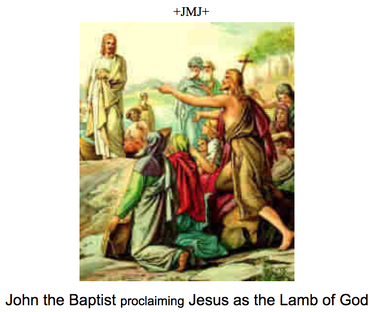
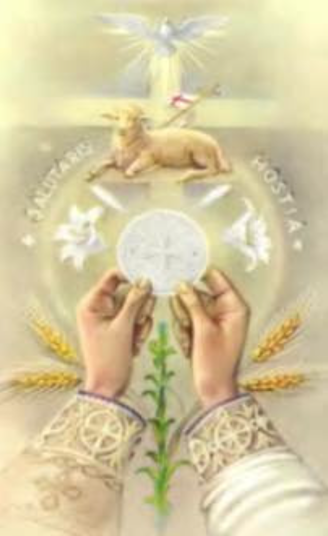
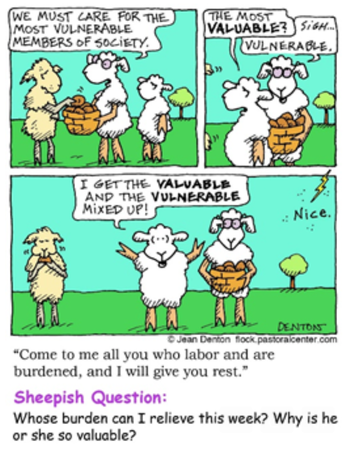

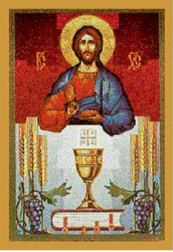
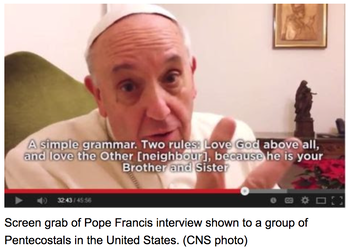

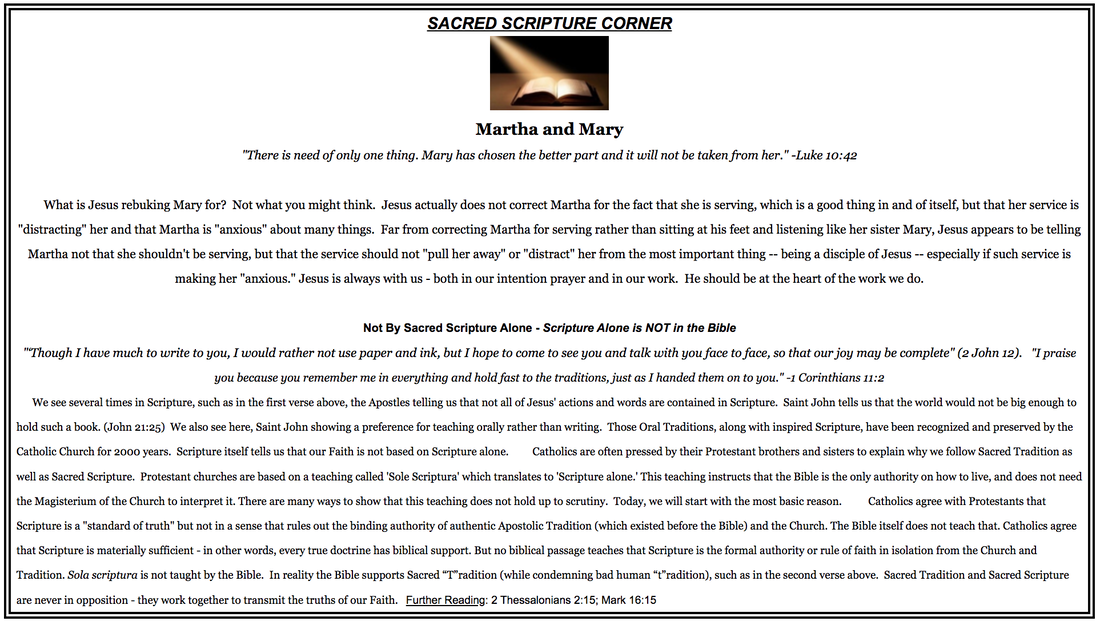
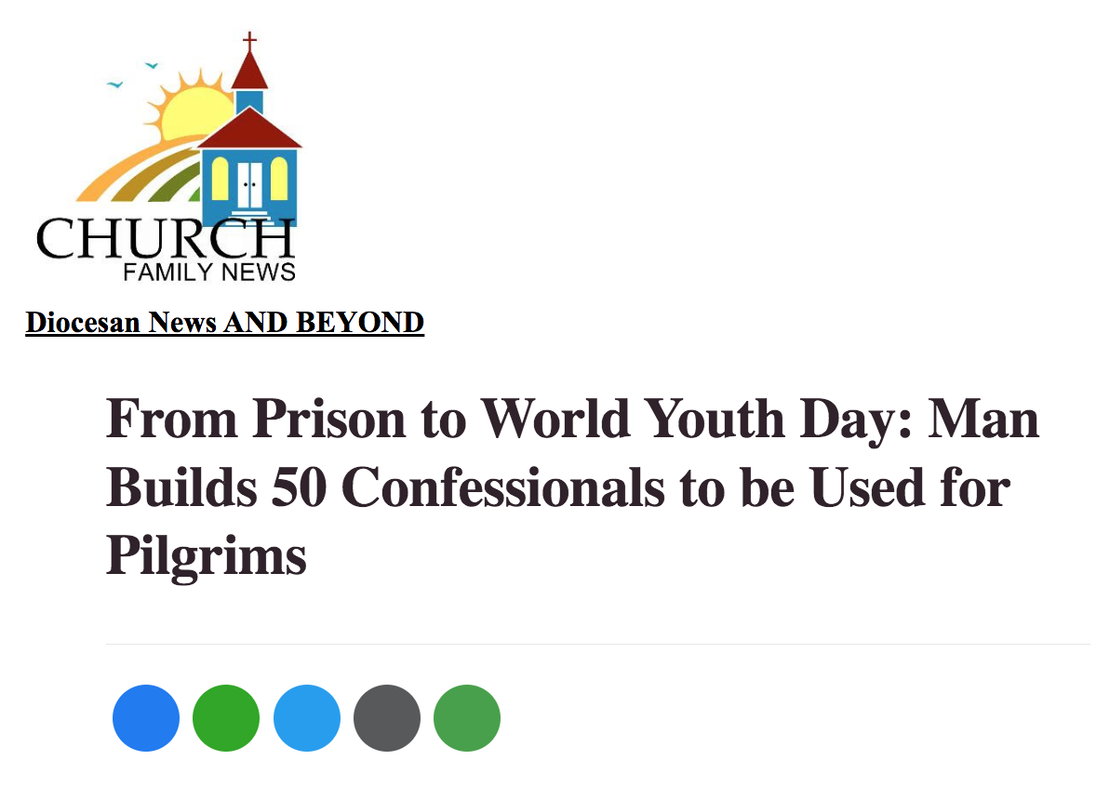
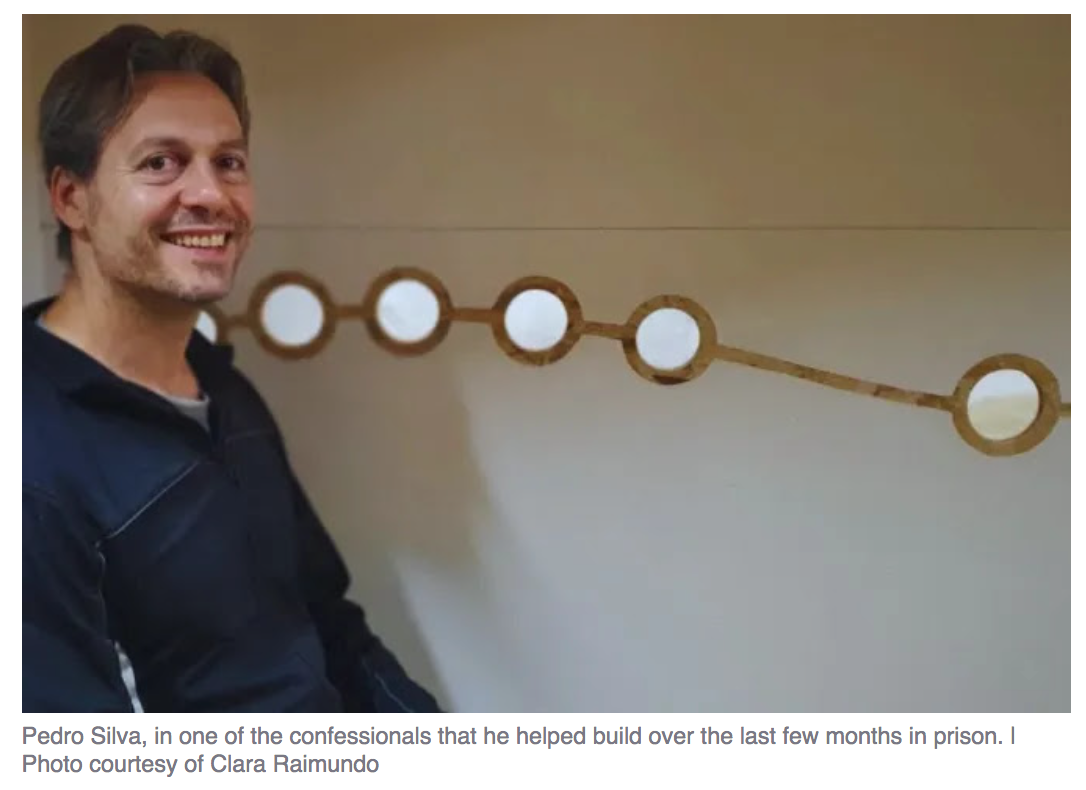
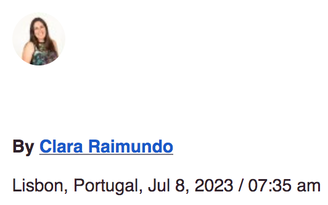
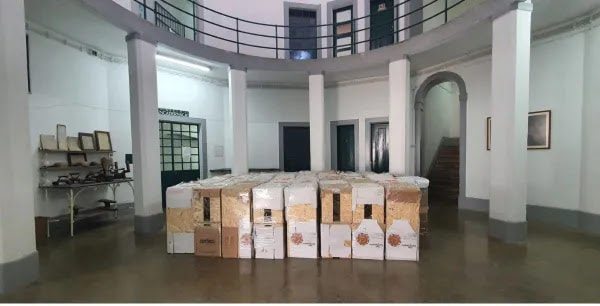
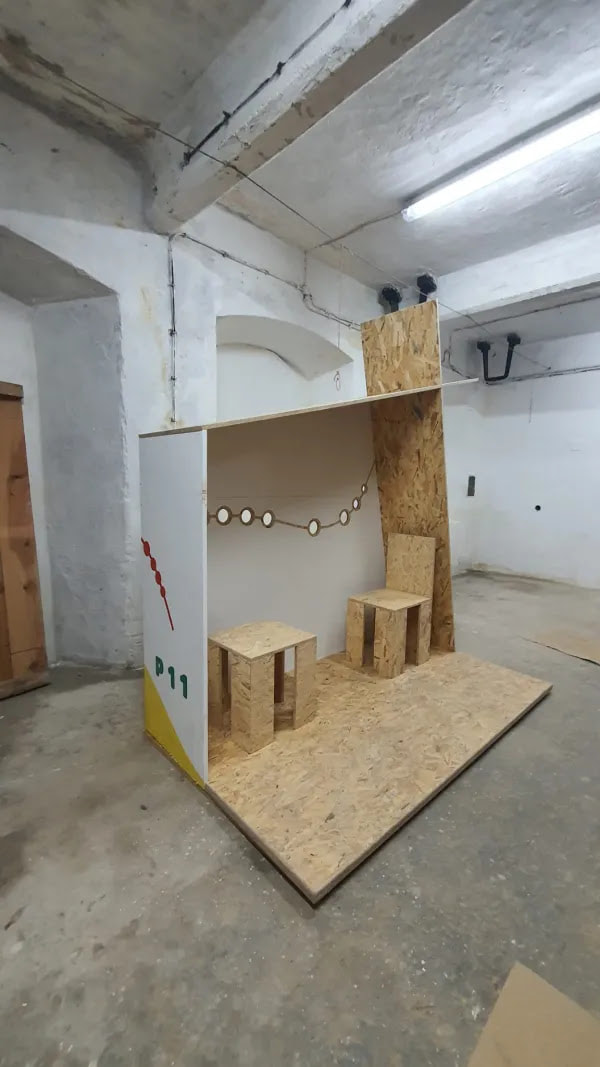
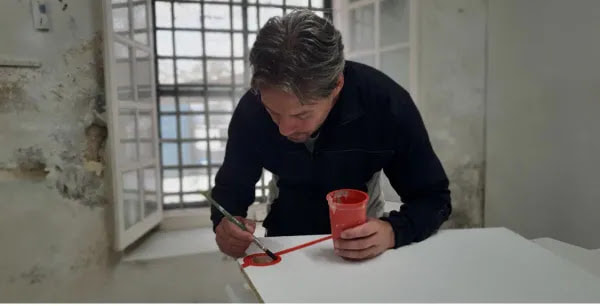
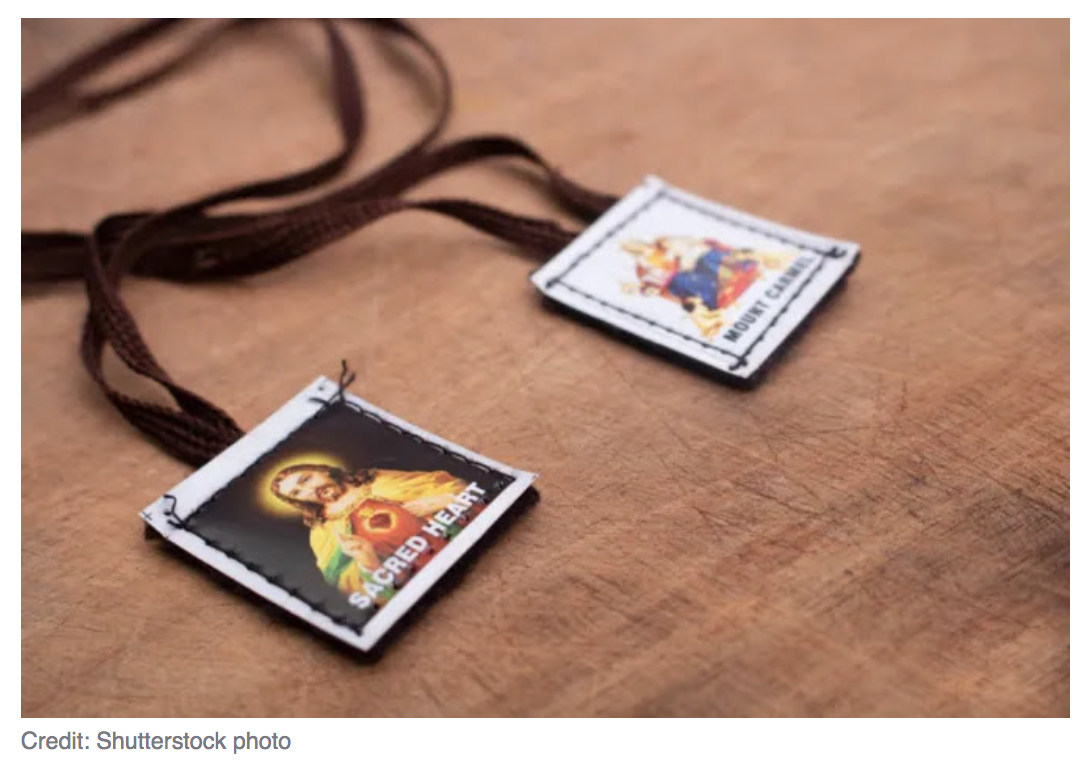
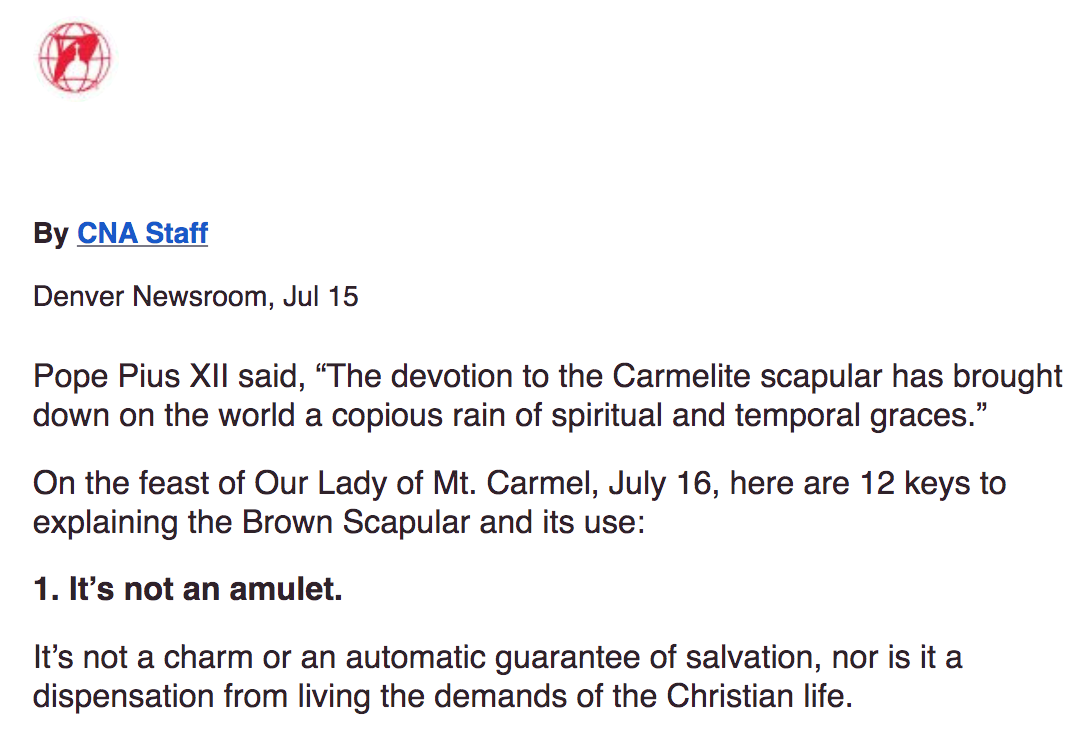


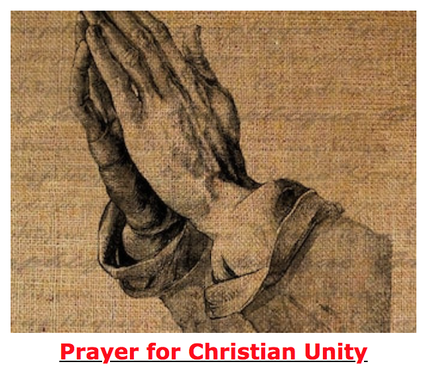
 RSS Feed
RSS Feed
